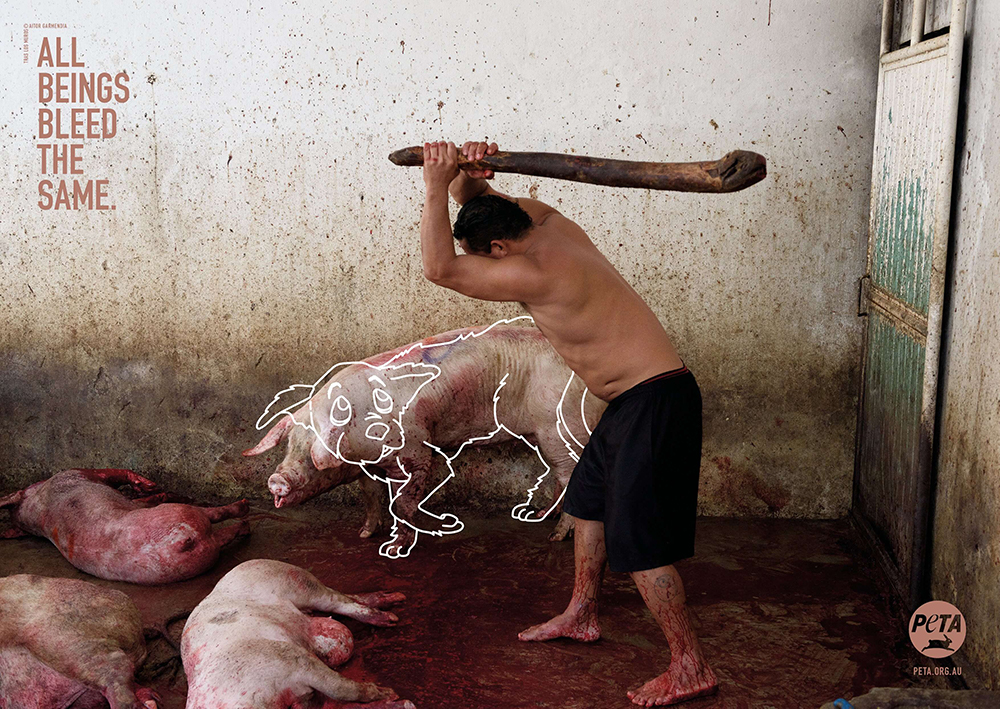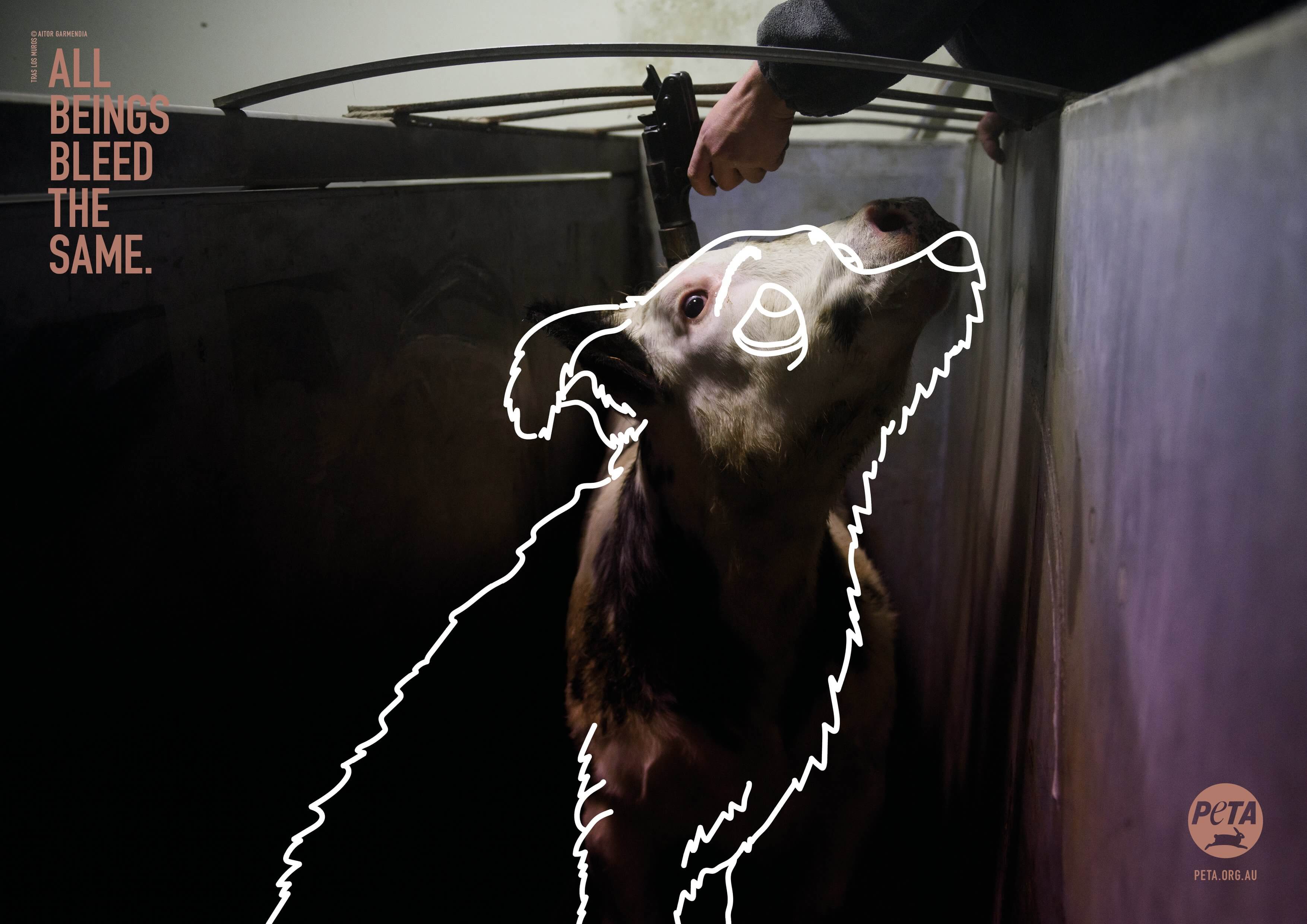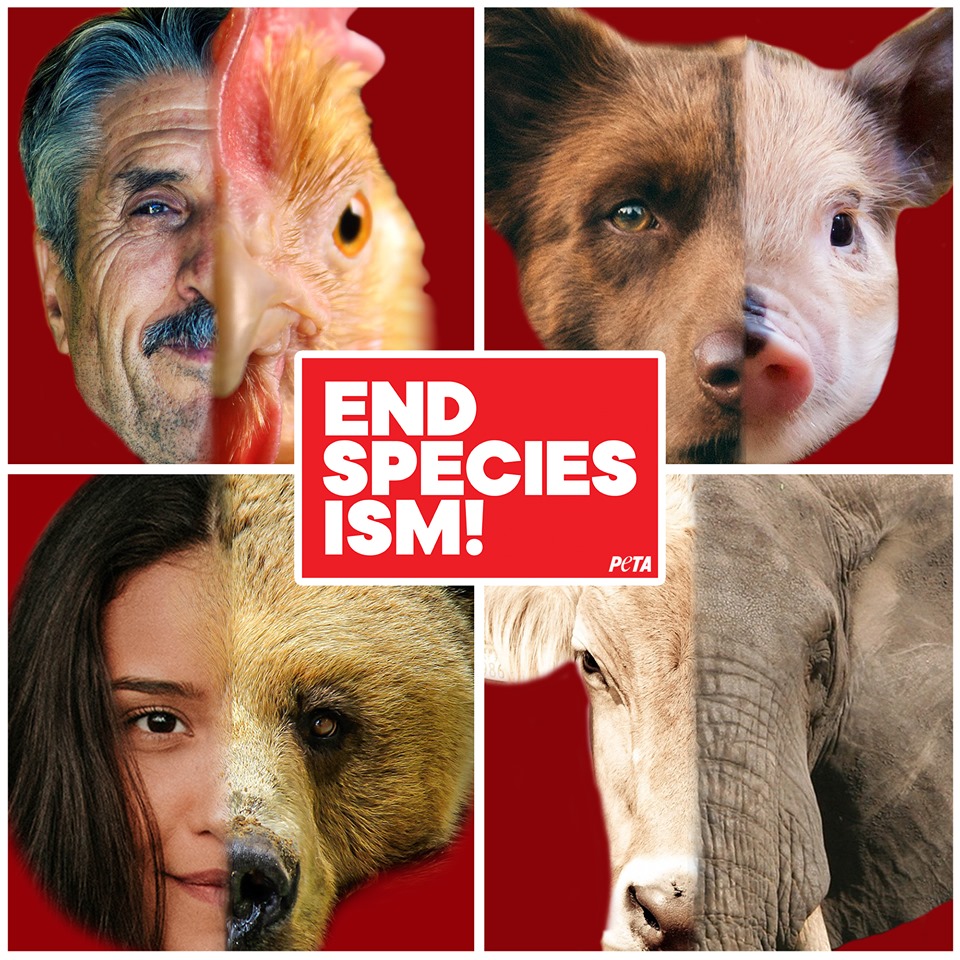Many humans grow up thinking of themselves as entirely different from and superior to other animals, which lays the foundation for exploiting them.
From childhood, most humans are conditioned to view certain species as worthy of care and compassion and others as less important or unworthy – based on arbitrary preferences. This toxic view also leads people to draw groundless distinctions between animal species based on their perceived usefulness to humans. Consider the following examples:
- Animals are often referred to as property. Many humans call themselves an animal's "owner" and refer to the animal as "it", as if he or she were an inanimate object like a table or a chair.
- Most humans wouldn't dream of keeping their dog in a cramped, crowded warehouse on a slab of filthy concrete, which is the way pigs are treated in the food industry – even though pigs are able to experience the same pain, joy, fear, and misery that dogs can.
- Some people wear coats trimmed with fur from coyotes or stuffed with feathers pulled from a screaming goose, but most of them would never consider tearing fistfuls of fur out of a crying kitten's back with their own hands.
- Many people judge other cultures for eating dogs or poaching wildlife while wilfully turning a blind eye to their own cruel habits – as if eating other animals or hunting deer were any different.
Bottom line: Because of speciesism, we learn to ignore our own conscience, which tells us that it's wrong to mistreat others.
We convince ourselves that we have the right to imprison animals in laboratories, experiment on them, and kill them.
We tell ourselves that it's OK to eat ice cream made from cows' milk without recognising that a few moments of satisfaction can't outweigh a mother cow's right to nurse and care for her calf.
We steal sheep's wool for sweaters and scarves and ducks' feathers for jackets or pillows.
Profiteers remove orcas and dolphins from their ocean homes and keep them in concrete tanks for "entertainment".
And the enjoyment that someone may get from casting a baited hook into the water to catch fish can't matter more than the pain inflicted on them when they're pierced through the lip and yanked into an environment in which they can't breathe.
It's speciesist to believe that the differences between humans and other animals are enough to warrant torturing and killing those we don't relate to. It's speciesist to think that we are superior and are therefore somehow justified in raping, caging, and mutilating animals who don't look exactly like us. It's speciesist to exploit others because we don't understand them fully or at all, to assume that they're not as intelligent as we are when we measure their intelligence in human terms, and to dismiss their suffering because it benefits us.

We Are Alike in the Ways That Matter Most
Whether we have feathers or fur, skin or scales, we're all able to experience complex feelings such as love, sadness, pain, and joy and we all have a will to live – these qualities are not unique to humans. Consider these examples:
- Elephants and chimpanzees will mourn and shed tears if a member of their family dies.
- Mother cows will walk for miles to find their stolen babies.
- Many orcas stay with their families for life in the oceans.
- Rats willingly put themselves in harm's way to save others.
- Fish like physical contact with other fish and often gently rub against one another – in the same way that a cat weaves in and out of your legs.
We know now that animals can all reason, they all have forms of communication, they figure things out that we can only wonder at, and they certainly suffer greatly at human hands.
Working to end speciesism means considering the impact of your actions and words on animals in your everyday life and working to eliminate any harm to them.


Show your support for animal rights via Twitter and Instagram by posting some of the following messages or creating your own using the hashtag #EndSpeciesism:
- I'm helping #EndSpeciesism by buying only products not tested on animals.
- I'm helping #EndSpeciesism by not going to horse races.
- I'm helping #EndSpeciesism by being vegan.
- I'm helping #EndSpeciesism by not wearing fur.
- I'm helping #EndSpeciesism by not calling animals "it".
- I'm helping #EndSpeciesism by giving animals consideration in all that I do.